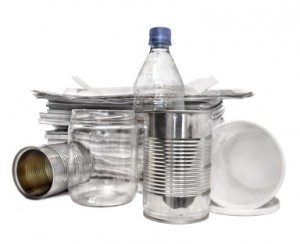
According to the government:
The Bill provides a means for monitoring the way waste is disposed of in Ontario for the purpose of establishing waste reduction targets under the Waste Diversion Act, 2002 and of promoting recycling. Carriers who remove waste from sites where industrial, commercial or institutional activities are carried on are required to ensure that accurate records are kept of the amount of recyclable waste, defined as glass, metal, paper, plastic, textiles and any other prescribed materials, and unsorted waste that they remove from such sites and of the amount of recyclable waste and non-recyclable waste that they remove and deliver to waste disposal sites. They are also required to ensure that this information is submitted to the Minister of the Environment on a quarterly basis. Similar requirements are imposed on persons who own or operate waste disposal sites. Offences are created for failure to comply with the provisions relating to the keeping of records and submitting of information, as well as for keeping or submitting false or misleading information. The Minister of the Environment is to be responsible for auditing and verifying the accuracy of the records kept and the information submitted to it.
In fact, many carriers and transfer sites already keep records of the recyclable materials that they segregate but some are not currently required to provide regular reports to the province. For waste generators, the main impact of the new Act may be a requirement that they weigh or otherwise measure the segregated recyclable materials that they generate.
For no particularly good reason, this reporting requirement is getting a statute of its own, rather than being included in the Environmental Protection Act where it belongs.